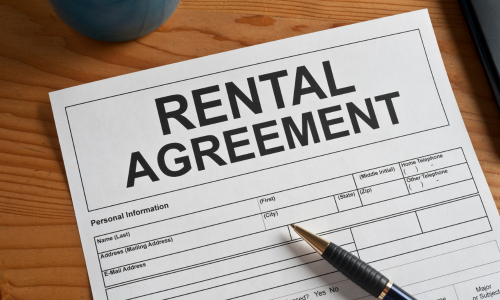
Keeping a rental property in good condition is essential for maintaining its value and attracting quality tenants. However, regular use naturally leads to wear and tear, and constant repairs or replacements can become costly. For landlords, the key is to minimise damage while keeping expenses under control. Here are some practical and cost-effective ways to reduce wear and tear in your rental property without overspending.
Choose durable materials and finishes
Investing in high-quality, durable materials for flooring, walls, and fixtures can reduce the need for frequent replacements. Hard-wearing laminate or vinyl flooring is a cost-effective alternative to carpets, as it is easier to clean and less prone to damage. Walls painted in washable, scuff-resistant paint allow for easy maintenance, reducing the need for frequent repainting. Opting for sturdy, low-maintenance kitchen units and bathroom fittings also helps minimise wear over time.
Set clear expectations with tenants
A well-informed tenant is more likely to take care of the property. Providing a clear tenancy agreement that outlines maintenance responsibilities, such as keeping carpets clean and reporting issues promptly, encourages tenants to look after their home. A simple guide on how to care for appliances, heating systems, and ventilation can also prevent unnecessary damage caused by misuse.
Use protective measures in high-traffic areas
Simple, affordable additions can significantly reduce wear in areas that experience the most use. Doormats at entrances help prevent dirt and grit from damaging flooring, while fitted furniture pads protect wooden or tiled floors from scratches. Installing door stoppers and kick plates can prevent damage to walls and skirting boards, reducing the need for repainting and repairs.
Carry out regular inspections and maintenance
Regular inspections allow landlords to catch small issues before they become expensive problems. Spotting early signs of damp, leaks, or damage gives you the chance to address them before they lead to costly repairs. A scheduled maintenance check every few months helps keep the property in good condition and reassures tenants that issues will be dealt with promptly.
Provide quality fixtures and fittings
While it may be tempting to furnish a rental property with budget-friendly items, poor-quality fixtures can break easily and require frequent replacement. Investing in sturdy door handles, strong curtain poles, and reliable kitchen appliances can save money in the long run by reducing the need for repairs. Choosing neutral, timeless designs also helps prevent the need for frequent updates due to changing trends.
Encourage responsible tenant behaviour
Encouraging tenants to report maintenance issues as soon as they arise can prevent minor problems from turning into expensive repairs. Providing a simple process for reporting issues and responding quickly to repair requests builds a positive relationship with tenants and helps keep the property well-maintained. Offering incentives for long-term tenants who take good care of the property, such as minor upgrades or professional cleaning, can also be beneficial.
Limit excessive wear with smart furnishing choices
For furnished rentals, choosing stain-resistant fabrics for sofas and chairs, and using wipeable surfaces for dining tables and worktops, can help keep furniture in good condition for longer. If you provide a washing machine, consider installing a filter to prevent damage from limescale and debris. Simple choices like these can significantly extend the lifespan of furnishings without increasing costs.
Use a professional end-of-tenancy clean
At the end of each tenancy, having the property professionally cleaned can help prevent long-term damage. Deep cleaning carpets, appliances, and bathrooms keeps them in good condition and makes it easier for new tenants to maintain the property. Some landlords include professional cleaning as a requirement in the tenancy agreement, ensuring the property is returned in good condition.
Protect your investment cost-effectively
Reducing wear and tear does not have to be expensive. By choosing durable materials, setting clear expectations, and maintaining the property proactively, landlords can keep their rental homes in excellent condition without overspending. A well-maintained property attracts responsible tenants, reduces repair costs, and helps ensure a long-term, profitable investment.
Contact us today for practical solutions to protect your property investment
